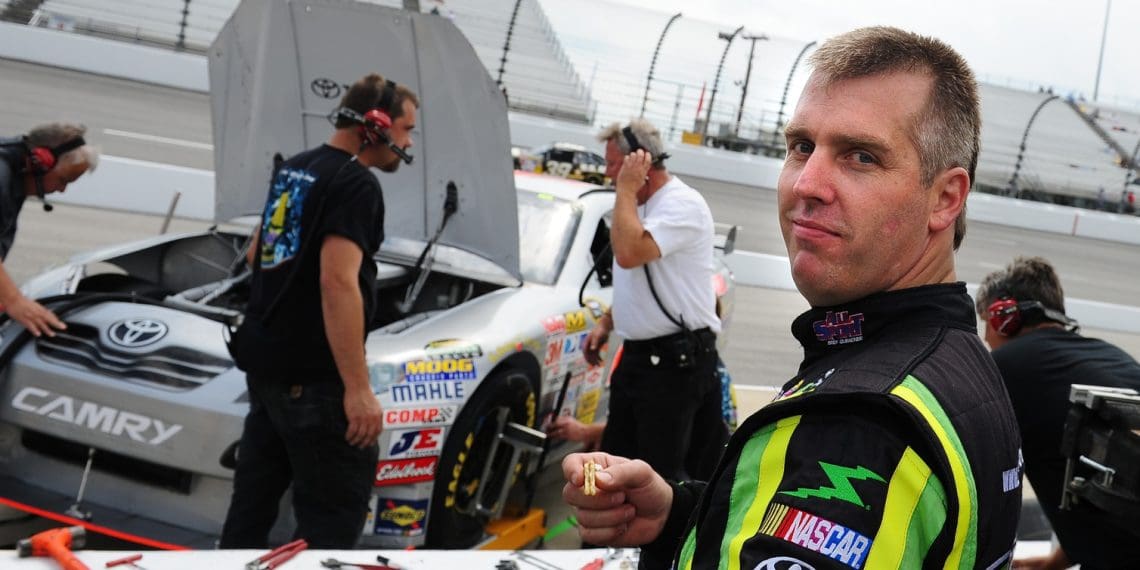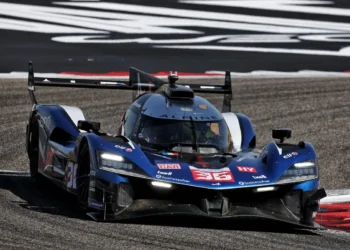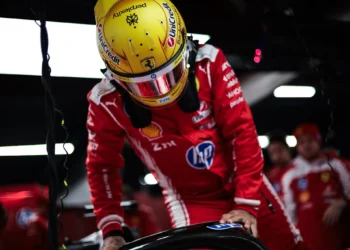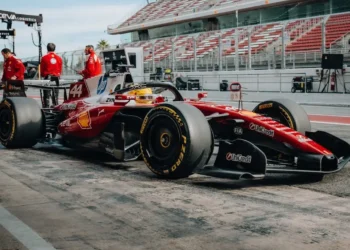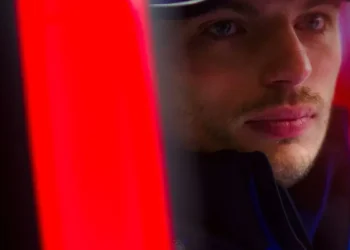NASCAR is no stranger to legal drama, having faced high-profile disputes throughout its history. From antitrust lawsuits like the infamous Ferko case to the ongoing charter battle with 23XI Racing and Front Row Motorsports (FRM), the sport’s governing body has a knack for being embroiled in controversy. But few cases compare to the stormy saga of Jeremy Mayfield, whose career was derailed by what he claims were NASCAR’s monopolistic practices.
Jeremy Mayfield’s Fall From Grace: A Driver’s Nightmare
In 2009, Mayfield, a successful NASCAR driver with a career spanning 17 years, was abruptly suspended for allegedly violating the sport’s substance abuse policy. NASCAR accused him of testing positive for methamphetamine after a drug test at Richmond Raceway. However, Mayfield denied the allegations and took NASCAR to court, alleging that the organization’s monopolistic policies were to blame for his suspension.
The case gained traction when Mayfield secured an injunction to compete again, but his battle with NASCAR ultimately became a war of attrition. Despite his efforts, the courts ruled that Mayfield had waived his right to sue NASCAR for defamation when he signed his license agreement.
Mayfield later reflected on the ordeal, telling Chase Holden, “I didn’t lose it on the drug test or any of my tests I’ve done. But the judge threw out the case, basically saying we can’t sue NASCAR for any reason because I signed a paper when I got my NASCAR license.”
A Parallel Battle: 23XI Racing and FRM vs. NASCAR
Fast forward to 2025, and NASCAR is once again under legal scrutiny—this time from powerhouse teams 23XI Racing and Front Row Motorsports. The teams are challenging NASCAR’s charter system, alleging anti-competitive practices. Unlike Mayfield, these teams have the financial resources and legal muscle to mount a formidable challenge.
Mayfield acknowledged this stark difference, saying, “For Michael [Jordan] and Denny [Hamlin], it’s going to be a lot easier because they’ve got the money to pay their attorneys and not have to worry about it too much.”
Victory in Round One: Teams Secure Charters
In a major win for the teams, US District Judge Kenneth Bell granted 23XI Racing and FRM a preliminary injunction to retain their chartered status for 2025. This decision forced NASCAR to transfer a charter from Stewart-Haas Racing (SHR) to FRM, with the court ordering no delays. Front Row Motorsports has since confirmed their expansion to a three-car operation, sharing on social media:
“FRM has finalized the purchase of our third charter from Stewart-Haas Racing. Announcement on driver, car number, and additional partners will be coming soon.”
23XI Racing, on the other hand, is yet to make an official announcement. While their initial injunction did not request the transfer of an SHR charter, the precedent set by FRM’s case strongly suggests a similar outcome for Michael Jordan’s team. Reports indicate that NASCAR has preemptively agreed to transfer a charter to avoid further legal setbacks.
NASCAR’s Uphill Appeal
Despite these developments, NASCAR is not going down without a fight. The organization plans to appeal the court’s rulings, aiming to reverse the charter transfers. This move mirrors its approach in previous legal battles, such as the Ferko lawsuit, where NASCAR sought to settle disputes out of court to maintain control.
Echoes of Mayfield’s Case
Mayfield’s battle highlighted the power imbalance between NASCAR and its challengers. While Mayfield lacked the resources to sustain his fight, the current antitrust lawsuit shows that well-funded teams can make significant headway against the organization’s policies.
Mayfield’s reflection on his ordeal underscores the stakes for 23XI Racing and FRM:
“We thought everything would come out, but NASCAR’s policies and contracts make it almost impossible to fight them. It’s good to see others taking a stand now.”
What’s Next for NASCAR?
With NASCAR’s appeal looming, the sport faces a defining moment in its governance structure. If the teams succeed in their legal battle, it could reshape NASCAR’s charter system and give smaller teams a fighting chance. For now, all eyes remain on the courts as NASCAR’s legal battles rage on.

